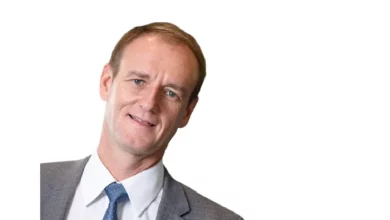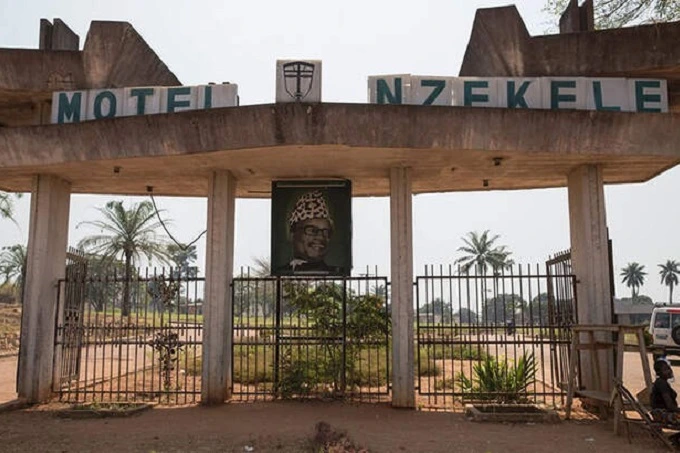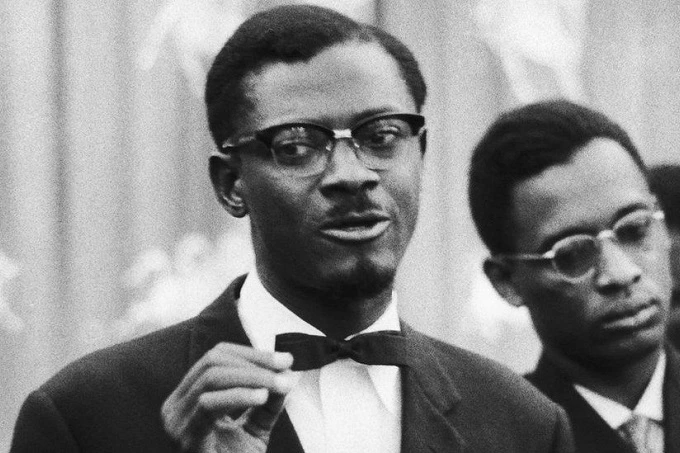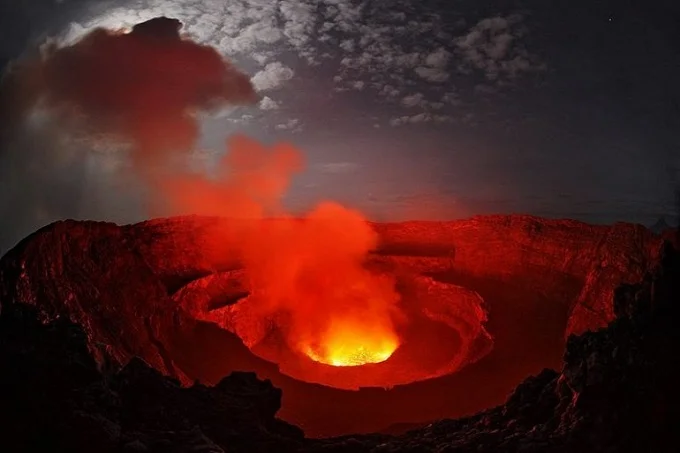DRC: Geneva conference, startling or undermining sovereignty?

In Geneva, this Friday, April 13, the UN, the European Union, and the Netherlands are organizing a donor conference for the DRC.
According to the UN, at least 13 million people, one-third of whom are internally displaced, need emergency humanitarian assistance this year… And more than $1.5 billion is required in order to help them. The Congolese government refused to participate, saying the conference was a bad reflection of the country, as the Kinshasa challenges the gravity of the crisis.
From many special correspondents in Geneva, according to humanitarians, this is one of the worst displacement crises in the world with more than 4.5 million internally displaced people. In Ituri, a northeastern province of the country, tens of thousands have fled to the capital, Bunia, and Uganda since mid-December.
These displaced and refugees are lacking everything, fleeing massacres of a scale that this region of the DRC had not known for fifteen years, even if many shouts at the manipulation.
Between 2002 and 2003, violent of inter-ethnic clashes, against the backdrop of looting of resources, ravaged Ituri, resulting in the deployment of the first force under European banner, the French operation Artemis. It is the crimes of this dirty war that made the first trials of the International Criminal Court.
Many provinces in crises
In Bunia, displaced people arrive hungrily, some after hiding or having fled for several days. “My baby is dead, I did not have enough to breastfeed,” says a displaced girl in her thirties. A month and a half ago, she lost her eight-month-old child. She had nothing to eat, nothing to feed him. When she was able to access help, it was too late.
Since mid-2016, the emergency is not only in the provinces of the East, North, Kivu, and Ituri. In Tanganyika, inter-community clashes had already erupted in 2014. But since August 2016, dozens of villages have been attacked; all the territories of this province born of the division of Katanga have experienced violence.
The crisis is overflowing with the displacement of populations and armed militias in neighboring provinces. It is also in August 2016 that the insurgent leader Kamuina Nsapu was killed in the bloody assault on the village of the same name. His death led to an unprecedented insurgency in the Kasai provinces, affecting a large area like Norway. The repression was brutal. The UN says it has documented dozens of mass graves.
In the IDP camp in Bunia, Ituri province, April 12, 2018. Displaced people arrive there hungry, some after hiding or having fled for several days.
In 2016, the Democratic Republic of Congo had to experience the first democratic alternation in her history. President Joseph Kabila was coming to the end of his second and final constitutional mandate. The electoral commission claimed that it had neither the financial nor the technical means to organize the elections, but also mentioned the difficulty of enlisting voters in the Kasai. These arguments, echoed by both the Congolese government and the presidential majority, were blasted by the opposition and part of civil society, believing that Ceni was working to keep Joseph Kabila in power, in violation of the Constitution.
Two years later, Kinshasa says it can organize the elections without external financing or supervision, welcoming the rise in commodity prices and a projection of growth of nearly 5% and criticizes the statistics given by the UN on the humanitarian situation. The Congolese government puts forward of 230,000 IDPs when the UN speaks in millions.
Financing down, more and more displaced
“The Democratic Republic of Congo is one of the places of worst crises in the world,” says Jan Egeland, Secretary-General of Norwegian Refugee Council (NRC). 13million people need emergency humanitarian assistance, which is comparable to what is happening in Syria or Yemen.
What NRC deplores as Oxfam is the lack of attention of the international community to this crisis. In 2017, the UN’s humanitarian action plan was only 56.5% funded. “I was shocked to see how much people are there, who find themselves” alone and suffer without anyone to help them,” says Jan Egleman. Due to lack of money, humanitarian flights were suspended for Walikale territory in North Kivu; there are no more actors or assistance, despite thousands of displaced.
“Last year, there was a drop in funding, it was even the lowest funding rate in a decade,” said Vanessa Huguenin, one of Geneva’s spokespersons for the country’s Office for the Coordination of Humanitarian Affairs, of the UN (OCHA). Yet the UN estimates that humanitarian needs in Congo have doubled in a year and that there could be up to 807,000 Congolese refugees in neighboring countries.
One in twenty displaced in the DRC
But if humanitarian assistance does not reach hundreds of thousands of Congolese since last year, it is not just for lack of funds. The deterioration of the security situation also hampers the delivery of aid.
Humanitarians are, like the Congolese, victims of attacks and kidnappings in the east of the country. For security reasons, some actors are abandoning IDP sites, most of which are not recognized by the Congolese authorities, who estimate their number at 69 for the whole country. One out of twenty is known as such today by the Congolese government.
In North Kivu, as in Tanganyika, two provinces where Kinshasa has the highest proportion of internally displaced persons, the authorities regularly talk about closing the camps, believing that people should return home and that the security situation has improved.
In North Kivu, between 2015 and 2016, more than a dozen camps were attacked or emptied by security forces. In 2017, in Tanganyika, a dozen more had caught fire, probably accidentally. The tents were not to be sustained. In small sites, the huts in size, for lack of tarpaulins, were too close to cooking over a wood fire and lack of access to water. A violent fire destroyed part of the IDP camp in Katanyika, near Kalemie, Tanganyika province.
In January 2018, it was in the presence of the Prime Minister recruited in the ranks of the opposition, Bruno Tshibala, that the humanitarian action plan was presented. The Congolese government leader hailed the humanitarian workers’ investment. The UN was counting on $1.7 billion in assistance for 13 million people. Since then, $200 million has been found.
When the Congolese government announced its intention to boycott the Geneva donor conference, it also announced the establishment of a solidarity fund that should be funded to the tune of $100 million. “Very quickly, ten million will be disbursed,” promised the head of the Congolese diplomacy, Leonard She Okitundu, at a recent press conference.
“We are not closed to all contributions in the framework of international solidarity, but what we have refused is that we organize a conference on distress in the Democratic Republic of Congo ignoring the government of this country.” The conference, a “sectarian approach” for Kinshasa
His colleague from the communication went further and talks about a lack of consultation on the figures, a risk of error. “We will not allow people to do a job if we did not participate in the program,” Lambert Mendé told RFI, recalling that “you can not help someone against their will.”
On the side of the UN, however, it is said to have proposed everything to obtain the participation of Kinshasa, “strongly desired”, including the co-presidency of this conference. “But it has become political,” says a UN source who sees the prolongation of a standoff between Joseph Kabila and Westerners.
The United Nations Office for the Coordination of Humanitarian Affairs even announced the lifting of the “L3” emergency mechanism triggered, as the comparison between the situation in some provinces of the Congo and Syria or Yemen, annoyed the Congolese government. These two countries are indeed classified under “L3”.
The Embassy of the Democratic Republic of Congo in Geneva sent notes verbales to some countries. The Netherlands and Sweden have been accused of “unfriendly” behavior to adopt a “sectarian approach”. “The government of the Democratic Republic of Congo would like to recall that it is the only legal and legitimate representative of the Congolese people,” said this message, provoking the ire of the opposition and citizen movements. But pressure from the Congolese government paid off.
Many NGOs have been reluctant to communicate, and the UN has publicly emphasized the gravity of the crisis. The United Arab Emirates, co-organizer of the event, have given up attending this conference. It remains to be seen whether Abu Dhabi has also waived its contribution.




